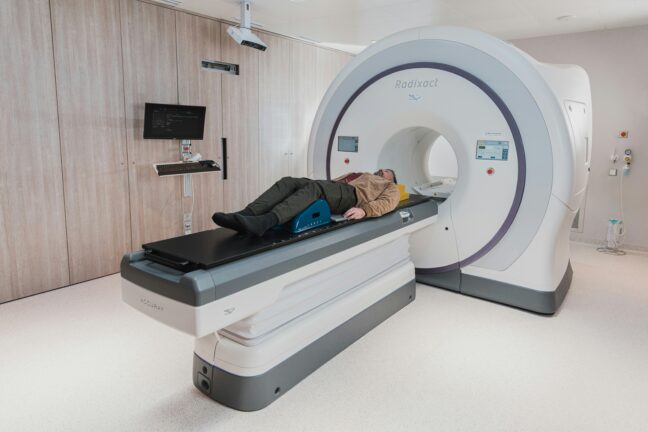The European Commission is facing criticism over its delayed EU4Health 2025 Work Programme. The plan slashes this year’s annual prevention funding by 42 per cent to under €70m. It also sidelines civil society organisations.
The Commission’s plan allocates a mere €68.19m to prevention-related activities, marking a steep 42 per cent drop compared to the €118.5m earmarked for similar goals in 2024. By contrast, the crisis preparedness strand alone receives €121.9m, nearly double the entire prevention allocation. Although the work programme cites alignment with new Commission priorities and legislative objectives, it offers no explanation for the sharp reduction in prevention funding.
Prevention deprioritised amid broader agenda
The Commission structured the 2025 work programme around five strands. These include crisis preparedness, health promotion and disease prevention (DP), health systems and the healthcare workforce, digital health, and a flagship strand combining cancer, cardiovascular and other non-communicable disease (NCD) priorities.
These thematic areas align strategically with key legislative frameworks. These include the regulation on cross-border health threats, the Medical Devices Regulation, and new acts on health data and biotechnologies. The plan also seeks synergy with Horizon Europe and the Strategic Technologies for Europe Platform (STEP). In particular, it aims to advance biotech and personalised medicine.
Under EU Regulation (EU) 2021/522… at least 20 per cent of the total budget of the Programme shall be allocated to health promotion and disease prevention.” – Dorota Sienkiewicz, EuroHealthNet
Within this wide remit, prevention measures appear diluted. Under the dedicated DP strand, procurement is mainly limited to technical contracts. These include maintaining tobacco product databases, monitoring characterising flavours in cigarettes, and running stakeholder platforms such as the Health Policy Platform. While essential, these activities account for a limited budget envelope and do not reflect a broader investment push (which some in the field came to expect).
Most prevention-related funding in 2025 is found under grants within the flagship strand, where Europe’s Beating Cancer Plan remains the core instrument. The work programme continues to support screening programmes, early detection efforts, and health literacy campaigns for cancer and cardiovascular disease. It also embeds prevention across policy platforms, e.g., through raising awareness on cross-border healthcare rights and engagement with European Reference Networks (ERNs), where early intervention is often critical.
You might be interested
Even so, the combined total of €68.19m across all strands and instruments is significantly lower than 2024 levels. The reduction has triggered concerns that upstream, life-course approaches to health face deprioritisation, at odds with the stated ambitions.
Promises unmet, or postponed?
In her post-election mission letter to Commissioner for Health and Animal Welfare Olivér Várhelyi, Commission President Ursula von der Leyen was explicit: “I want you to step up our work on preventive health, ensuring a comprehensive approach to health promotion and disease prevention across the life course. Investing in effective prevention measures will reduce the burden of noncommunicable diseases, helping to lighten the load on healthcare systems and supporting healthy longevity.”
Mr Várhelyi’s mandate also includes direct responsibility for “stepping up the Commission’s work on preventive health.” The implementation of the Europe’s Beating Cancer Plan and revisiting tobacco control legislation are to play a key role in the effort.
I want you to step up our work on preventive health. – Ursula von der Leyen, President of the European Commission
However, the reduced financial commitment in the 2025 programme appears at odds with that mission. While strategic alignment is visible, the operational budget suggests a shift away from structural prevention as a funding priority.
Civil society calls foul
Public health organisations have been quick to raise the alarm. On social media platform LinkedIn, Dorota Sienkiewicz of EuroHealthNet described the prevention budget as “an absolute knock-down, disastrous figure.” She warned that dedicating only 1.3 per cent of the total €571m programme to health promotion and disease prevention procurement “goes against the spirit and letter” of the EU4Health Regulation.
“Under EU Regulation (EU) 2021/522… at least 20 per cent of the total budget of the Programme shall be allocated to health promotion and disease prevention,” Ms Sienkiewicz noted. Antonella Cardone, CEO of Cancer Patients Europe, added: “It should not go ‘unpointed’ to the EC. Regulations must not be ignored! Let alone common sense.”
Their remarks reflect growing civil society frustration that despite strong political messaging, meaningful investment in structural health prevention is faltering. With it, the EU’s long-term vision for resilient, equitable health systems takes a back seat to more urgent priorities.
Civil society sidelined
Concerns about prevention are compounded by the lack of dedicated operational funding for health NGOs in the 2025 programme. While project-based grants remain, no structured support is in place for the core functioning of public health organisations. This has raised fears about a shrinking civic space in EU health policymaking. Groups that have long promoted health equity, community outreach and patient representation warn that this gap will weaken both implementation and accountability.
The delayed release of the work programme, published only in late July, has further complicated planning for civil society. Many organisations say the timing limits their ability to prepare and engage strategically with upcoming calls.











